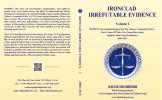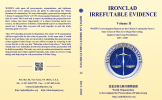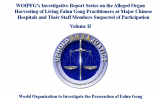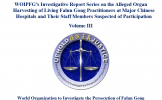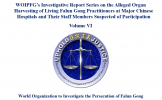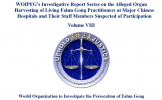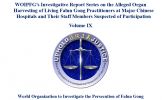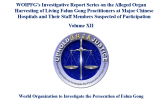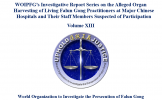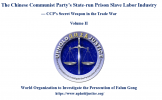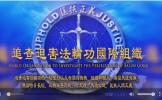Washington Internet Daily: China Disputes Claim It Arrests People for Internet Downloads
(Dugie Standeford 12/2/2002 3:53)
An Amnesty International (AI) report that charged China was jailing people for downloading materials from the Internet isn't the first time the group has made "irresponsible and groundless charges" against that country's human rights policies, a Chinese official said Wed. The report -- State Control of the Internet in China -- was unveiled Tues. It lists 33 Net users who have been detained for such offenses as "printing pro-democracy material," downloading information from Falun Gong Web sites and subversion. A man and woman, both Falun Gong practitioners, are said to have died in custody last year and a 3rd is listed as having been ill-treated and tortured. Many were subjected to secret trials, AI said. The "Chinese govt. is devoted to promoting human rights" and fundamental freedoms, the official told us. Following the recent 16th Party Congress, he said, the U.S. media repeatedly noted China's achievements in the last 2 decades, including its "unprecedented progress" in terms of human rights and personal freedoms. No one could fail to notice those achievements, the official said, but AI appeared to "turn a blind eye" to them.
Netizens who violate China's laws and regulations aimed at restricting free speech and dissemination of information online "may face imprisonment and according to recent regulations some could even be sentenced to death," AI said. Since 1995, it said, the Chinese govt. has introduced more than 60 rules covering Internet use.
The govt. also reportedly is monitoring Web sites, chat rooms and private e-mail, AI said. It shut down thousands of Internet cafes, forced others to install software to filter out banned sites and introduced a "voluntary pledge" of self- discipline that Yahoo and other ISPs signed, the group said. While there's nothing wrong with regulating Internet companies and placing some legitimate restrictions on their activities, AI said, the "wide-ranging and broadly defined" pledge could be used as part of wider efforts to block online freedom of expression and association in China.
Moreover, AI said, a law enacted in Jan. 2001 makes it a capital crime to "provide state secrets" to organizations and individuals over the Internet. It voiced concern over reports that foreign companies such as Sun Microsystems, Cisco Systems and Microsoft were giving Chinese authorities the technology they needed to censor the Internet. AI urged China to release persons charged with Internet-related crimes and to review "regulations and other measures... which restrict freedom of expression in a manner going far beyond what would be regarded as legitimate restrictions under international standards."
While an AI spokeswoman said the group didn't expect to receive a response from the Beijing govt., the Chinese official said one could be issued in the next few days. This is AI's first country report on govt. Internet controls, the spokeswoman said. There are no other countrywide reports on tap, she said, although researchers have highlighted specific cases in other places. (Dugie Standeford 12/2/2002 3:53)


